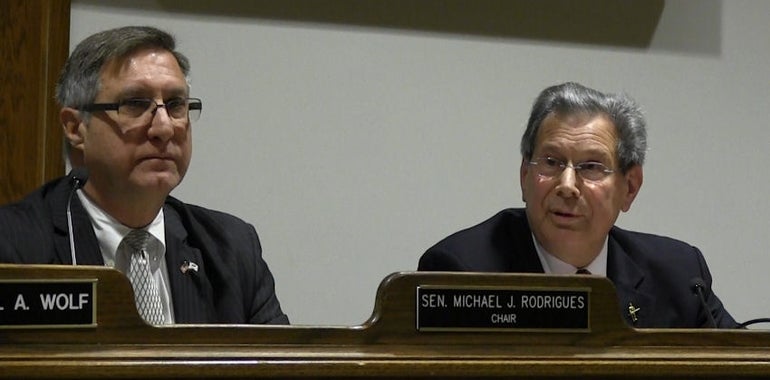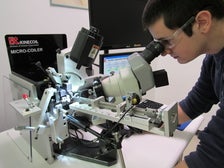Millionaire's tax could hit small(ish) businesses hard
 Antonio Caban/SHNS
Revenue Committee Chair Rep. Jay Kaufman praised the Raise Up coalition, who spearheaded the effort for the constitutional amendment, in remarks following a favorable vote on the measure.
Antonio Caban/SHNS
Revenue Committee Chair Rep. Jay Kaufman praised the Raise Up coalition, who spearheaded the effort for the constitutional amendment, in remarks following a favorable vote on the measure.
Two main narratives have emerged around the proposed millionaire's tax in Massachusetts. Those in favor of the petition essentially say there are nearly 20,000 fat-cat millionaires that could be taxed to the tune of $2 billion a year with relatively little harm to them or the economy. The other side argues this is taking money directly out of the economy and could drive innovative people to less tax-happy states.
Lost in the clutter of the debate has been the nuance that many of these millionaires are the owners of relatively small businesses. The tax could have a detrimental effect not only on these people's personal bottom line, but that of their business, according to Massachusetts business groups.
What is it?
The millionaire's tax is an initiative petition that would establish a 4-percent surtax on incomes more than $1 million. More than 90,000 certified signatures were turned in supporting the petition. Proponents, such as Raise Up Massachusetts, say the measure would improve equality and provide needed funds for education and transportation.
The Massachusetts Department of Revenue estimates the proposed surtax would affect 19,500 filers, raising about $1.9 billion in revenue. The measure could appear on the 2018 ballot pending a vote by 50 members of state legislature.
How are small firms impacted?
These millionaire's aren't just people with a high-paying job. Nearly 80 percent of those making a million or more are reporting income from a business such as a sole proprietorship or a partnership, said Bill Vernon, the Massachusetts director for the National Federation for Small Businesses.
While this category does not cover most small business owners -- the average NFIB member has five employees and grosses around $450,000 a year -- it does include small manufacturers and financial services firms, he said. Many of these people pay taxes at the individual rate on their business' profits because it is simpler than setting up a corporation.
Vernon stopped short of saying the tax would drive small businesses to other states. He acknowledged many small businesses are not prime candidates for relocation. However, it's a matter of simple math: if business owners have less money, there will be fewer investments in the business.
“It will discourage the creation of new jobs and the creation of new small businesses and the expansion of current small businesses,” Vernon said.
He said simply having $2 billion pulled out of the state economy would hurt small businesses' revenue.
What happens now?
If you're a small business, not a whole lot will happen until 2018 when the measure might appear on the ballot. If this measure were to progress, Vernon expects more small businesses would move to incorporations.
NFIB and the Associated Industries of Massachusetts have come out against the measure, while a group of university economists support it. Whichever side you're on, there is a lot of lobbying left to do before this issue is put to bed.












0 Comments